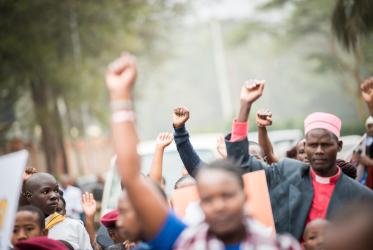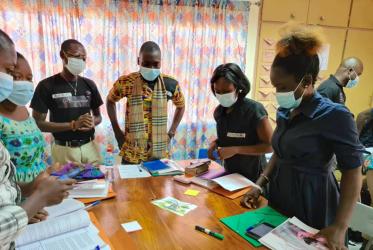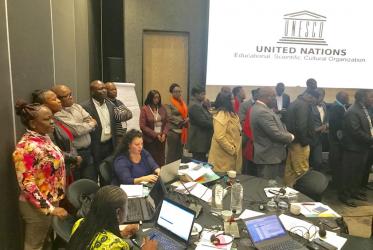Displaying 1 - 20 of 70
Recommended Practices to Combat HIV-Related Stigma
A Guidebook for Local Faith Communities
05 October 2023
Faith Sector Implementation of the Global AIDS Strategy
05 October 2023
WCC mourns passing of Hendrew Lusey-Gekawaku
23 October 2020
Youth leaders: “We will stop at nothing” to end HIV and violence
17 October 2019
WCC President Wejryd: ‘Water, in many ways, represents God’
27 September 2019
Knowledge of gender roles deepens in Togo
03 June 2019











